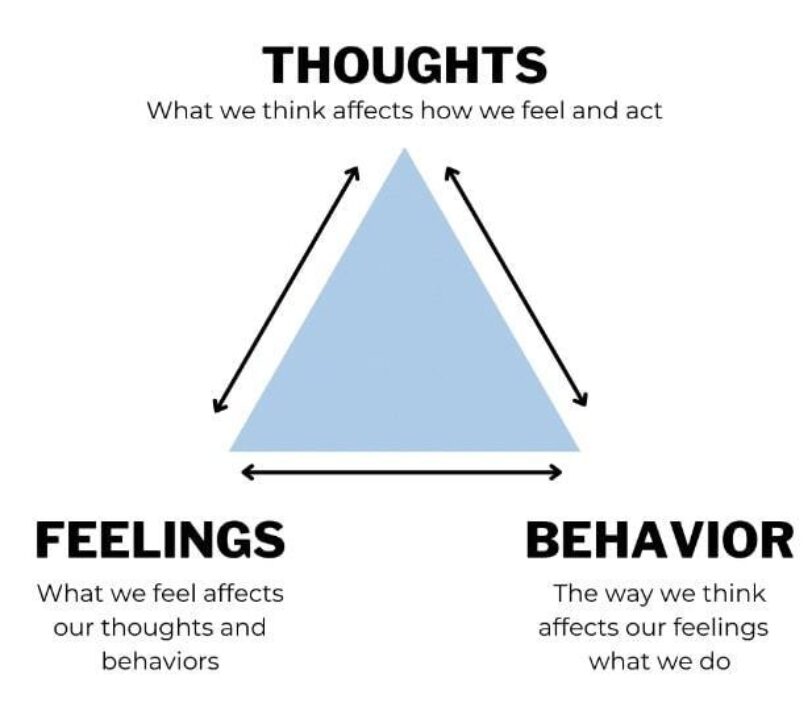
If you're experiencing symptoms related to mild to moderate depression, you may benefit from depression therapy with a trusted, qualified therapist.
How Does Therapy Help Depression?
The impact of depression may be misunderstood by individuals who have not experienced it. Depression can be pervasive and debilitating, causing individuals to struggle in their jobs, at school, and in their relationships.
While it’s normal to feel sad from time to time, depression is a mental illness that can affect your ability to function in everyday life. Left untreated, depression can even impact a person’s physical health.
With the help of depression therapy, however, individuals can reduce their symptoms, identify the source of their depression, and develop coping skills for handling stressful situations in the future.

What is Depression?
Clinical Depression, also called Major Depressive Disorder, is a mood disorder characterized by persistent sadness and loss of interest. In addition to affecting how you feel, think, and act, it can also lead to a variety of physical and emotional problems.
When experiencing depression, individuals describe losing interest and pleasure in things they used to enjoy, and in severe depression may even feel as though nothing matters. Some individuals describe feeling hopeless, helpless, and/or worthless during times of notable depression.
While sadness is a normal emotion, feeling sad for weeks or months may indicate clinical depression. As clinical depression does not typically resolve on its own, consulting a mental health professional is often necessary in order to reduce symptoms and improve a person’s quality of life.
Depression Symptoms
The effects of depression can be felt in the body, mind, and emotions. Common symptoms of depression include:
- Overwhelming feelings of sadness, tearfulness, hopelessness, or emptiness
- Anger, irritability, or frustration
- Loss of interest in previously enjoyed activities
- Sleep disturbances, such as insomnia or excessive sleep
- Loss of energy or fatigue
- Reduced appetite or increased cravings
- Changes in weight
- Restlessness, anxiety, or agitation
- Sluggish thinking, speaking, or movement
- Feelings of worthlessness
- Impaired mental abilities, such as memory and concentration
- Physical problems, such as achiness, muscle tension, or headaches
- Suicidal thinking or attempts
What Causes Depression?
Depression is a complex illness. While the exact cause is not fully understood, there are a number of factors believed to increase the chance of someone developing depression. Researchers find that people with depression may have a combination of the following genetic, biological, environmental, and psychological factors:
- Age: Depression is more common among the elderly, and other factors, such as living alone and a lack of social support, can exacerbate it.
- Gender: Women are twice as likely as men to suffer from depression. Hormonal changes that women go through at different times in their lives may be responsible.
- Brain structure: Research has shown that people with depression often have physical differences in their brains compared to people without depression.
- Brain chemistry: Mood is influenced by brain chemicals called neurotransmitters. When you have depression, these chemicals might not be working as they should.
- Genetics: Although researchers haven't identified genes responsible for depression, being related to someone who suffers from depression increases your chances of developing it.
- Hormones: When your hormone levels change as a result of pregnancy, postpartum issues, menopause, thyroid problems, or other factors, depression symptoms may appear.
- Certain health conditions: Depression may be exacerbated or correlated with specific health conditions, such as chronic pain or headaches.
- Certain medications: The risk of depression increases with the use of certain drugs, such as sleeping aids and blood pressure medications.
- Major life events: The loss of a job, the death of a loved one, and financial troubles can all trigger depression. Even positive events like moving, getting married, graduating, or retiring can lead to depression.
- Abuse: You may be more likely to develop depression later in life if you have been physically, sexually, or emotionally abused.
- Substance abuse: It is estimated that nearly 30% of substance abusers are also depressed. While drugs or alcohol may temporarily relieve depression, they will ultimately worsen it.
Treatment for Depression
If an individual feels their life is being impacted by depression, there are several different types of therapy available that may be effective in alleviating depressive symptoms.
Different therapies may place greater emphasis on interventions that address one’s thoughts, feelings, and/or behaviors. Treatment is not a one size fits all, and while all of these treatments have been found effective in research, what works for one person may not work as well for others. When picking a therapeutic modality - consider your own preferences.
Therapies that Focus on Your Thoughts
A common therapy used for depression is Cognitive Behavioral Therapy. Cognitive Behavioral Therapy includes exploring thoughts, feelings, and behaviors, with an emphasis on identifying and modifying thought patterns. Individuals examine the relationship between their thoughts, feelings, and behaviors to modify thoughts that produce feelings of sadness, hopelessness, etc. as well depressive behaviors.
Often, these thought/behavior/feeling patterns are established early in life and exploring the thoughts that lead to depressive feelings and behaviors can be crucial to changing a depressive person’s thinking patterns.
This is more of an analytical approach to treating depression, and usually involves recording thoughts and behaviors across periods of time to become more familiar with your thought and feeling patterns.
Therapies that Focus on your Feelings
Person-centered therapy is mainly focused around feelings, and allows the patient the opportunity to explore their thoughts and feelings in a positive, supportive environment. This can be very helpful for individuals to process triggers related to their depression – whether it be ongoing stressful situations, past experiences, relationships, stress, etc.
Therapies that Focus on Your Behaviors
Behavioral activation can be very helpful in breaking the cycle of depression. When depressed, an individual often stops participating in pleasurable activities, which makes them feel worse, which leads to additional avoidance.
A therapist can help an individual set goals related to behavioral activation and keep them motivated and accountable. As an individual slowly begins to participate in regular activities again, they will feel more confident and capable and begin to enjoy activities again.
There are many different approaches to treating depression, and it is important to find the approach that works best for you. Give your therapist feedback on strategies that do or do not work well for you – it is also ok to seek out another therapist if you feel that you are not comfortable with a therapist or their approach to therapy.
What are the Benefits of Depression Therapy?
Working with a mental health professional offers individuals valuable support to reduce depression symptoms and change the direction of their lives. In addition to providing a comfortable, private setting for healing, therapists help depressed individuals find solutions to their problems and develop new ways of thinking.
Talk therapy also offers the following benefits:
- Identify and address emotions: It is easy to get caught up in distraction and avoidance when you are depressed. Talk therapy allows you to explore uncomfortable emotions so that you can deal with them.
- Change thought patterns: Talk therapy is one of the most effective ways to rewire your brain. Restructuring your thought patterns influences areas of the brain that control fear, emotion, and decision-making.
- New perspective: Depression can change the way you view yourself and the world around you. Through talk therapy, individuals learn more about themselves and the people around them.
- Prepare for the future: You never know when life will throw you curveballs. However, talk therapy gives you the self-confidence and reassurance you need to handle stressful situations that may come your way.
How to Get the Most Out of Depression Therapy
The effectiveness of depression therapy depends on your active participation, effort, and regular attendance. During therapy, establish some goals with your therapist. Be sure to check in with your therapist periodically to track your progress. If you disagree with your therapist's approach or do not feel like they are helping, discuss your concerns and seek a second opinion if necessary.
To get the most out of depression therapy, keep the following tips in mind:
- Identify your sources of stress. Journaling can be a helpful tool for keeping track of stressful and positive experiences.
- Establish your priorities. Identify positive and productive behaviors, and make plans to implement them.
- Practice self care. Make time for recreational and pleasurable activities. Get plenty of rest and listen to what your body needs.
- Communicate. Be open with your therapist about your feelings and needs. Keep a journal to write down your thoughts and feelings in between therapy sessions.
- Be patient. Therapy is not always easy and meaningful change takes time. Put your trust in the process and look at things from a broader perspective.
It's important to remember that successful therapy requires evaluation of your thoughts and behaviors, identification of stressors that contribute to depression, and effort to modify them. Those who participate actively in therapy recover faster and are less likely to relapse.
Talk Therapy with CHE
At CHE, we offer a no obligation FREE screening with a licensed therapist. They will ask a few questions, provide you with valuable resources and recommend therapy if needed. You can easily schedule online and choose your therapist. We accept most insurances and offer self-pay options.
At CHE Behavioral Health Services, we offer compassionate and effective treatment for a variety of mental health conditions. With an experienced network of over 850 licensed mental health professionals, CHE provides affordable, convenient, and personalized care.
To learn more about psychotherapy and its benefits at CHE Behavioral Health Services, please call 888-515-3834. We are ready to talk, and ready to listen.
Melinda Warth, M.A. is a Quality Assurance Associate at CHE Behavioral Health services. She has a master’s degree in clinical psychology and has provided therapy to individuals of all ages struggling with depression and other mood disorders.



